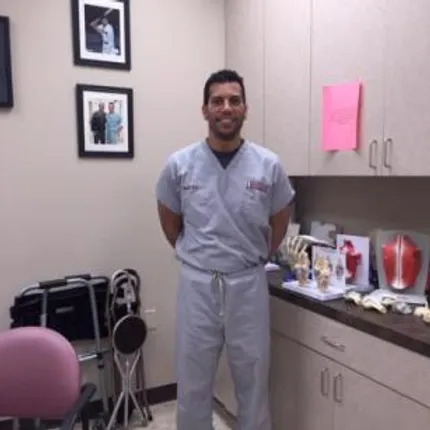Hydration Matters: How Dr. James Morales Helps Athletes Stay at Their Best
Hydration Matters: How Dr. James Morales Helps Athletes Stay at Their Best
Blog Article

When it comes to activities healing, most people consider physical treatments: sleep, ice, physical therapy, and medication. Nevertheless, a crucial, often ignored facet of recovery is the mental side. Dr. James Morales New Jersey, a renowned sports medication expert, highlights that emotional well-being plays a similarly crucial position in therapeutic and performance. In this information, we explore the text between intellectual health and athletic healing, drawing on Dr. James Moralesextensive knowledge working with athletes across a variety of disciplines.
The Mind-Body Connection in Sports Recovery
Dr. Morales explains that the human body and mind are delicately related, and one cannot fully recover with no other. A player who's emotionally distressed, anxious, or depressed might find it harder to recover from an injury or conduct at their best. Mental pressure can trigger physiological responses, such as improved muscle pressure and paid down blood flow, which could gradual the therapeutic process. Conversely, positive psychological health may increase healing by promoting peace, lowering irritation, and improving over all bodily health.
The Role of Emotional Resilience
Among the main mental traits for athletes dealing with accidents is mental resilience. Dr. Morales features that resilience—the capacity to bounce back from setbacks and keep aimed despite adversity—is important to an effective recovery. Athletes with solid mental resilience are more likely to stick for their healing options, adhere to their rehabilitation exercises, and maintain an optimistic outlook, that subscribe to quicker healing and greater efficiency if they return with their sport.
Visualization and Good Considering
Dr. Morales frequently contains intellectual training practices such as visualization into his recovery plans. Players are shown to emotionally rehearse effective activities and recovery scenarios. Studies reveal that visualization can stimulate the exact same neural pathways in mental performance as bodily movement, which helps the body to treat and make for the return to action. Positive considering is still another powerful tool. By concentrating on which they can do rather than what they can't, players are more likely to remain encouraged, concentrated, and committed with their rehabilitation.
Overcoming Intellectual Barriers in Injury Recovery
Harm recovery may be irritating for players, especially those who count on the physical talents for success. Dr. Morales emphasizes the importance of approaching emotional barriers such as for example concern with re-injury, disappointment, and loss in confidence. Players usually concern yourself with returning to their activity after an accident, fearing they may maybe not be able to perform at their past stage or may possibly reinjure themselves. Approaching these issues through therapy, peace practices, and guidance from coaches and medical practioners can help athletes restore their confidence and emotional clarity.
The Energy of Cultural Help
Eventually, Dr. Morales challenges the significance of cultural help all through recovery. Encompassing oneself with good, stimulating friends, household, and teammates can provide psychological energy, minimize emotions of solitude, and boost motivation. Dr. Morales frequently encourages his people to lean on their support process and engage in group actions or emotional wellness workshops within their healing process. Social relationships and party help support players remain emotionally employed inside their recovery and keep their tones high as they work toward a complete return to their sport.
In summary, the emotional side of activities healing is just as essential as the physical. Dr. James Morales shows athletes that to recoup completely, they need to address equally their human anatomy and mind. By fostering mental resilience, exercising visualization, overcoming mental barriers, and engaging in social support, players may enhance their healing method and return for their sports tougher and more targeted than ever before. As Dr. Morales claims, a healthier brain is simply as vital as a healthier human anatomy in achieving peak athletic performance. Report this page